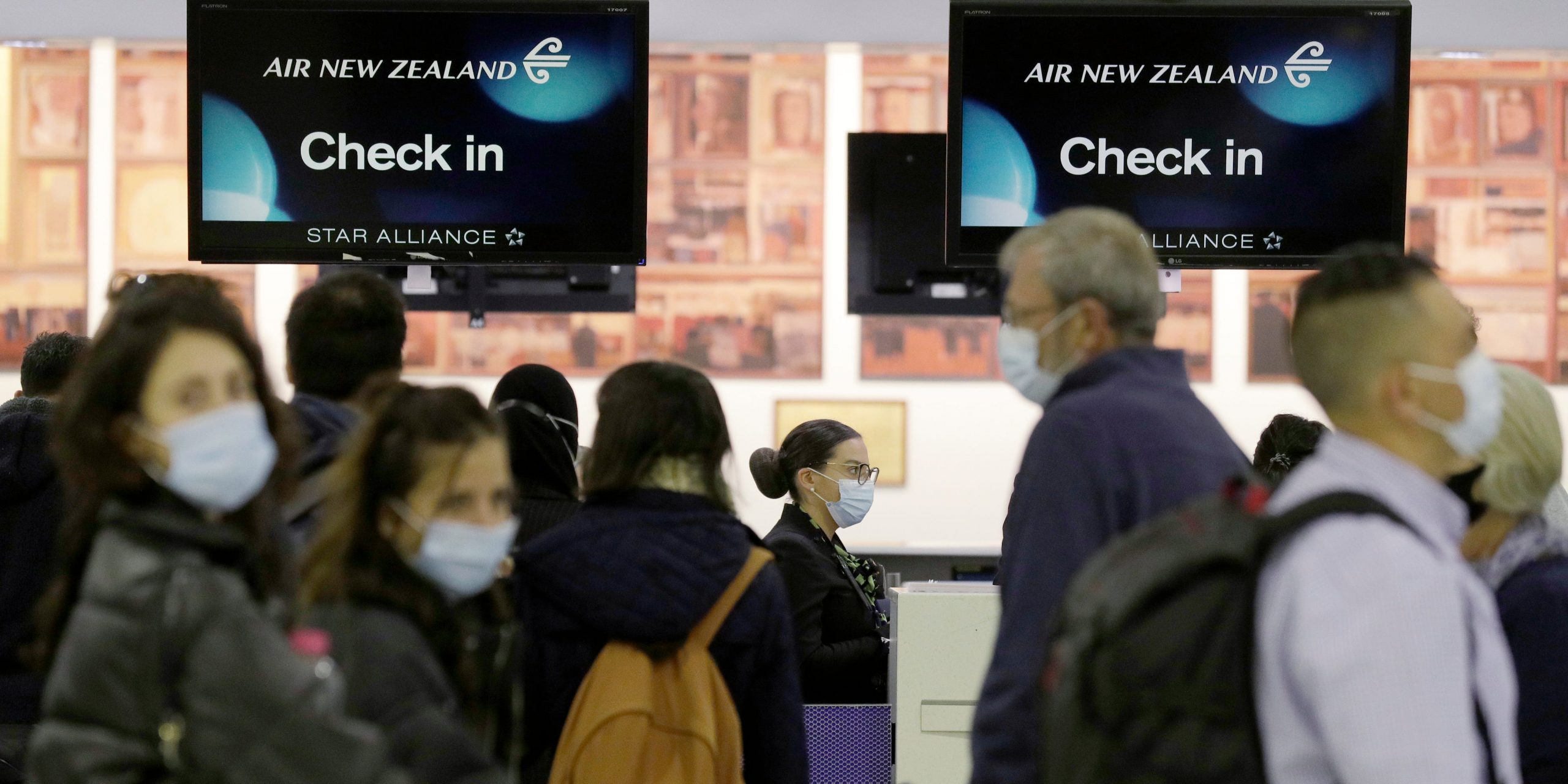
AP Photo/Rick Rycroft
- Australia has barred its own citizens from reentering the country if they are coming from India.
- Those who do return face up to five years in jail and a whopping $45,000 fine.
- The prime minister has stressed that the strict regulations are necessary to keep the country COVID-free.
- Visit Insider's homepage for more stories.
In one of the strictest border policies of the pandemic-era yet, Australia quietly announced Friday that any person who entered the country after visiting India in the prior 14 days, would be subject to jail time, a massive fine, or both – including Australia's own citizens.
The unprecedented travel ban has been slammed by Australians of Indian heritage, citizens stuck in India, and human rights groups for being discriminatory. However, Australian Prime Minister Scott Morrison defended the decision on Monday.
"This is about health," Morrison told Sydney's 2GB radio station. "There is a raging pandemic and we need to just continue take the decisions that are in the best health interests of Australia."
The percentage of cases that have appeared in quarantined people returning from India in recent weeks has increased sevenfold, Morrison said.
The Australian government's decision comes amid India's record-setting surge of COVID-19 cases and deaths that has overwhelmed hospitals and crematoriums. On Saturday, the country recorded more than 400,000 cases and more than 3,500 deaths in a single day, and some experts fear the official death count may be significantly undercounted.
Several other countries around the world have also made moves to limit or restrict travel from India in recent days. Britain, Germany, and the US have all imposed restrictions on travelers from India, but citizens and permanent residents of the countries are exempt.
Australia's decision to threaten its own citizens with up to five years in jail and/or a fine of 60,000 Australian dollars is an escalation from the country that has already imposed some of the world's strictest coronavirus regulations since the pandemic started.
There are about 9,000 Australians stranded in India, most of whom are desperate to return home, according to local Australian media.
One Australian woman, who has been stuck in New Delhi for the past year and sick with COVID-19 for more than a month, told The New York Times she believed her government owed more to its citizens.
"I thought our passports would look after us," Emily McBurnie told the outlet.
Though Australian officials have fervently denied the decision was motivated by anything other than health concerns, many have suggested the restrictions are a cultural double standard. Australia never imposed such restrictions on travel from the US or parts of Europe, even though both saw higher infection rates per capita during various surges earlier this year, The Times reported.
"When the US had the same issues, when the UK had many cases, they never stopped anybody from coming back," Drisya Dilin, an Australian hospital administrator who has been trying to repatriate her daughter from India for months, told the outlet.
Even before the new restrictions, Australia was only allowing 8,000 civilian arrivals a week, according to The Washington Post, and all had to quarantine in a hotel for 14 days upon entry at their own expense. Officials said the new policy is an attempt to keep the country's hotel quarantine system from being completely overwhelmed.
Officials have said the ban is temporary and it's currently set to be lifted on May 15.